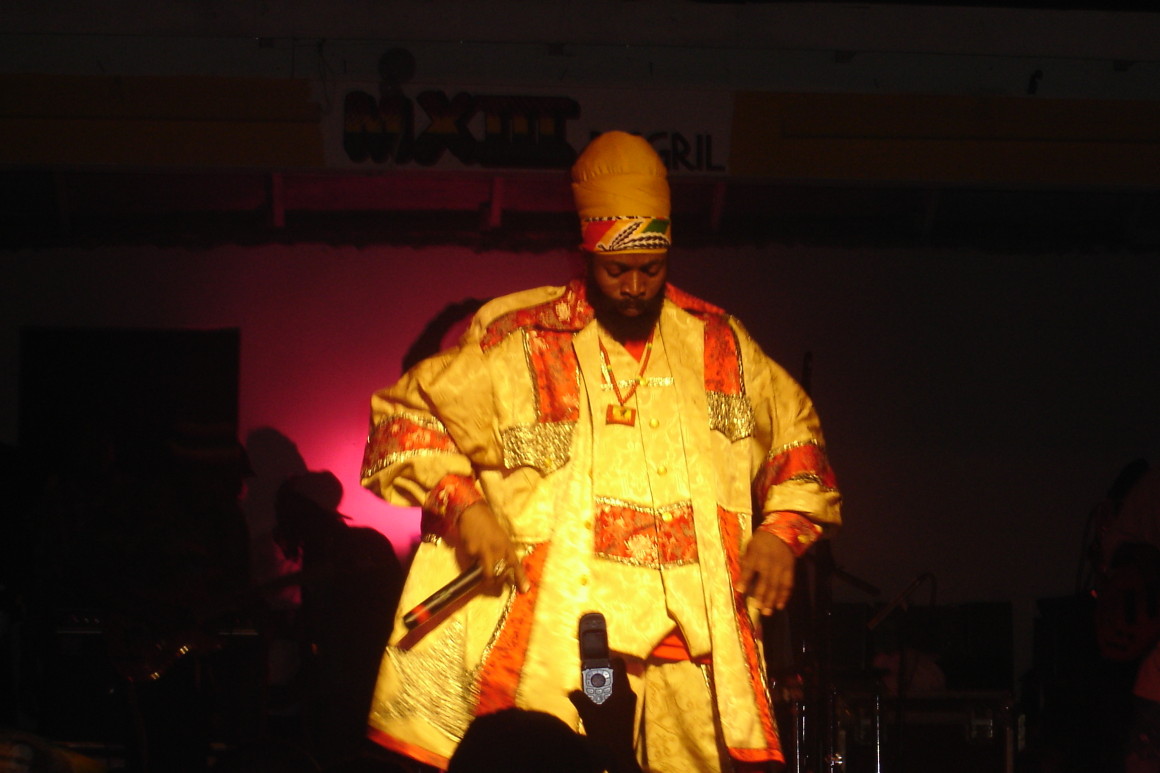
Edmonton Reggae Festival discusses concerns over homophobic artists with LGBTQ community
By Fabian Mayer, July 14 2015 —
Controversy now surrounds the Edmonton Reggae Festival after it was revealed last week that all three of its headlining artists have incorporated homophobic remarks or lyrics into past performances.
Artists Capleton and I Wayne both have songs that encourage violence against gay and lesbian people, while Queen Ifrica made comments viewed as homophobic during a 2013 performance. Several of her North American performances have been cancelled as a result of the incident.
The Edmonton Reggae Festival released a statement on Wednesday, July 8, saying that the festival does not condone any hate or discrimination and that the artists have been briefed on the festival’s expectations.
Edmonton Reggae Festival vice-president Anne-Kay Brown said each artist has a clause in their contract saying if they make negative statements “on the basis of gender, ethnicity, religion, sexual preference/lifestyle, economic status, etc.” they will face a $5,000 fine.
“They have their own views. But that doesn’t mean that as a festival that is what we stand for,” Brown said. “Our slogan is love and unity, we don’t want any discrimination or hate.”
Brown believes letting the artists perform under certain conditions may actually help their music become more inclusive.
“I think with each festival and show that they perform, people saying no you cannot sing these lyrics, I actually think it’s making them more conscious and more aware of the lyrics that they do write,” Brown said.
Local radio stations Hot 107 and Cruz 95.7, along with local TV station Global Edmonton, have suspended their sponsorship of the event as a result of the controversy.
Sierra Jamerson is part of the black LGBTQ community in Edmonton. She had planned to go to the festival but is now unsure if she will attend.
“I’m aware of homophobia in dancehall music, which obviously we condemn,” Jamerson said. “I really wish that a vetting process had occurred before these artists were brought in.”
Jamerson said her and other individuals have from the black LGBTQ community in Edmonton have formed a group to ensure their voices are a prominent part of any discussion.
“We really need to make sure that this direction is coming from black LGBTQ people,” Jamerson said. “We want to make sure that the space does become safe for everyone to be able to engage with their culture.”
According to Jamerson, the Caribbean LGBTQ community now faces backlash as a result of the controversy, including threats of violence and homophobic comments.
“Mostly what I really want people to know is that right now our community really needs the support of the greater community,” Jamerson said.
The Edmonton Reggae Festival met with members of the LGBTQ, black and caribbean communities on Sunday, July 12.
According to a statement signed by festival organizers and activists, including Jamerson, the signatories want the festival to “not only continue but also to thrive and be supported broadly.”
The festival called the meeting historic and has agreed to offer space at the event for LGBTQ support organizations to promote their work.
Maurice Tomlinson is a Jamaican-Canadian LGBTQ rights activist who fled Jamaica in 2012 out of concern for his safety. He believes the artists should not be allowed to play in Canada — even if they do not play any offensive songs.
“Until these individuals make a public denouncing of their homophobic lyrics, which they know are harmful, until they’re ready to do that then why are we giving them money to go back to Jamaica to continue perpetrating homophobia?” Tomlinson said.
According to Tomlinson, some reggae and dancehall music plays a role in the widespread violence against the LGBTQ community in Jamaica.
“There are so many better artists that are available from Jamaica that produce quality stuff that is not homophobic,” Tomlinson said.
